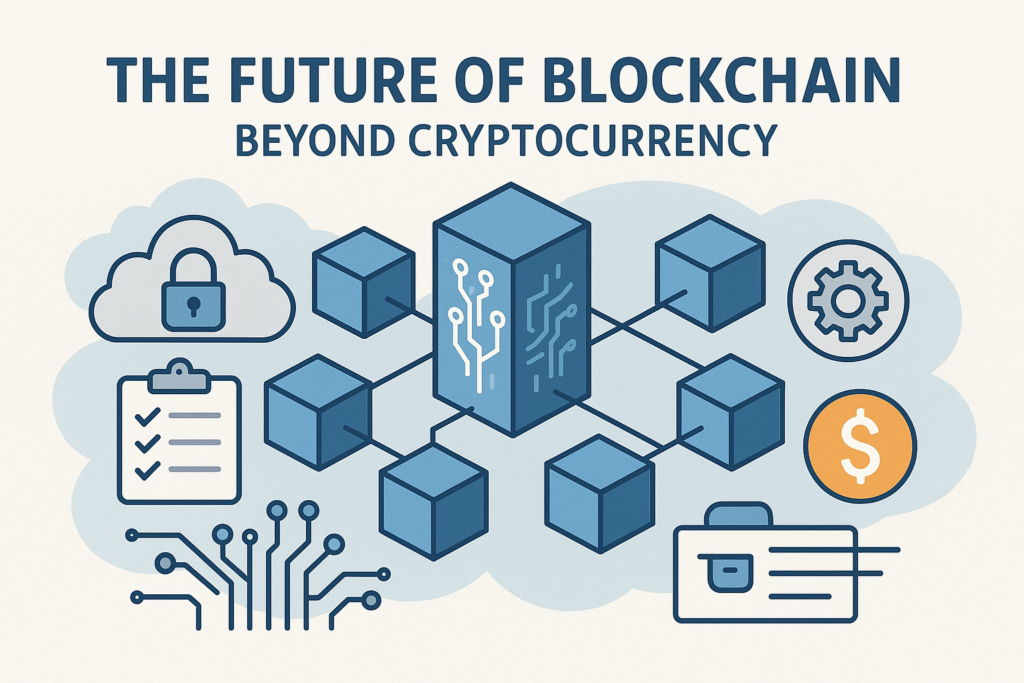
Blockchain technology is no longer just the backbone of cryptocurrencies like Bitcoin and Ethereum. It has evolved into a powerful, game-changing technology poised to revolutionize numerous industries far beyond digital currencies.
🔗 What Is Blockchain, Really?
At its heart, blockchain is a decentralized, distributed ledger that records transactions in a secure, transparent, and tamper-proof manner. Each block contains a record of transactions and is connected to the previous one, forming a chain. Once information is added, it becomes nearly impossible to alter, making blockchain ideal for industries that demand trust and accuracy.
💰 Finance: Fast, Secure, and Borderless Transactions
The finance sector was the first to feel blockchain’s ripple effect. Traditional banking methods for international transactions are often slow and expensive. Blockchain enables real-time cross-border payments with significantly lower fees and enhanced security.
Banks and fintech companies now use blockchain to:
- Reduce fraud through transparent transaction trails
- Speed up settlement times
- Cut out middlemen to save costs
🏥 Healthcare: Patient-Centric and Privacy-Focused
Blockchain is making healthcare smarter and safer. By storing medical records on a blockchain, patients control who accesses their data. This not only improves privacy but also enhances collaboration among providers.
Imagine a world where:
- Medical histories are easily shared between doctors with patient consent
- Health records are tamper-proof and always up to date
- Insurance claims are processed faster with blockchain validation
🚚 Supply Chain: From Factory to Front Door
In the supply chain industry, transparency is everything. Blockchain ensures that every step of a product’s journey—from sourcing to delivery—is recorded and traceable.
Benefits include:
- Reduced counterfeit goods
- Verified product origins (e.g., fair trade or organic claims)
- Real-time tracking and reduced delays
🤖 Smart Contracts: Automated, Trustless Agreements
Smart contracts are one of the most revolutionary blockchain innovations. These are self-executing agreements with the terms written directly into code. When specific conditions are met, the contract automatically takes action—no intermediaries needed.
Industries using smart contracts include:
- Real Estate: Instant property transfers
- Insurance: Automated claims approval
- Legal Tech: Enforcing agreements without court intervention
🌐 Merging with AI and IoT: The Future Is Integrated
The combination of blockchain with Artificial Intelligence (AI) and the Internet of Things (IoT) is unlocking new possibilities. For example:
- IoT sensors in logistics can record temperature or movement and instantly log data on the blockchain
- AI can analyze blockchain data for predictive analytics and fraud detection
This fusion leads to autonomous, intelligent systems that are trustworthy and highly efficient.
⚠️ Challenges Ahead: Scaling the Blockchain
Despite its potential, blockchain faces a few key roadblocks:
- Scalability: Can it handle millions of transactions per second?
- Energy Use: Traditional models like Proof of Work (PoW) consume massive energy
- Regulatory Hurdles: Legal frameworks are still catching up
Thankfully, newer models like Proof of Stake (PoS) and Layer 2 scaling solutions are addressing these concerns.
🧠 Final Thoughts: A Foundation for the Digital Age
Blockchain is more than a cryptocurrency enabler—it’s the infrastructure of tomorrow’s digital economy. From improving data integrity to creating new business models, its influence is just beginning.
As industries continue to adopt and innovate with blockchain, we are witnessing the birth of a more transparent, secure, and efficient digital world.